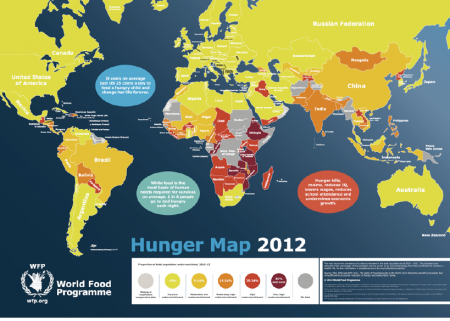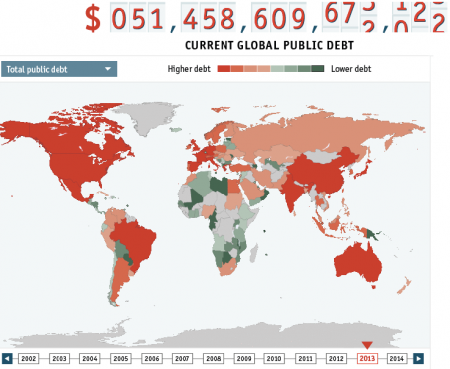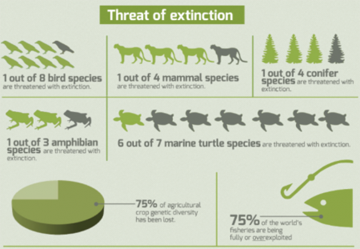“It’s not the strongest of the species that survives, nor the most intelligent that survives. It is the one that is most adaptable to change.” -Charles Darwin
Thanks to the web, social media and smart phones, people are more informed than ever as to the challenges our planet and societies face. As these issues compound, companies will increasingly be viewed as either part of the solution or problem. So the issue for leaders becomes one of both risk mitigation and reputation enhancement, as you must figure out how to authentically position your brand on the right side of social needs so that your customer community wants to see you succeed in this competitive marketplace.
Businesses can’t succeed in societies that fail and here are the top ten global crises that threaten your brand:
1. Loss of Biodiversity and Extinction: 75%of genetic diversity of agricultural crops has been lost and up to 70% of the world’s known species risk extinction if the global temperatures rise by more than 3.5%. As explained in the UN’s 3rdGlobal Diversity Outlook, the rate of biodiversity loss has not been reduced because the 5 principle pressures on biodiversity are persistent, even intensifying: (1) habit loss and degradation, (2) climate change, (3) excessive nutrient load and other forms of pollution, (4) over-exploitation and unsustainable use, and (5) invasive alien species.
2. Global Climate Change: The major world ecosystems at greatest risk of complete loss due to climate change are (a) Coral reefs (b) Arctic ecosystems and (c) Biodiversity in hotspots where losses of species due to climate change could number into the thousands or tens of thousands of species. (Source: Tyndall Centre)
 3. World Hunger and Poverty: The United Nations Food and Agriculture Organizationestimates that nearly 870 million people, or one in eight people in the world, were suffering from chronic undernourishment in 2010-2012. Almost all the hungry people, 852 million, live in developing countries, representing 15% of the population of developing counties.
3. World Hunger and Poverty: The United Nations Food and Agriculture Organizationestimates that nearly 870 million people, or one in eight people in the world, were suffering from chronic undernourishment in 2010-2012. Almost all the hungry people, 852 million, live in developing countries, representing 15% of the population of developing counties.
4. Universal and Sustainable Energy: More than 1.4 billion people worldwide have no access to electricity, and 1 billion more only have intermittent access. Some 2.5 billion people – almost half of humanity – rely on traditional biomass for cooking and heating. (Source: United Nations Foundation)
5. Global Health and Aging: The number of people aged 65 or older is projected to grow from an estimated 524 million in 2010 to nearly 1.5 billion in 2050, with most of the increase in developing countries.
6. Peace, Conflict, Security, and War: Between 1996 and 2003, the DRC was the site of the most deadly conflict since World War II, which led to the deaths of more than 5.4 million people. As well, more than than 800,000 Pakistanis are still in need of permanent shelters after their homes were destroyed in 2010 floods, with more than 1 million are in need of food assistance. And there are over 4.4 million Internally Displaced Persons in Sudan / South Sudan. (Source: Act for Peace)
7. Overpopulation: World population is projected to grow from 6.1 billion in 2000 to 8.9 billion in 2050, therefore increasing by 47%.
8. Clean Water and Water Scarcity: 783 million people, or 11% of the global population, remain without access to an improved source of drinking water.
9. Environmental Destruction: Over the past 150 years, deforestation has contributed an estimated 30% of the atmospheric build-up of CO2. It is also a significant driving force behind the loss of genes, species, and critical ecosystem services.

10. Trade and Economy Issues, Global Economic Collapse: The European Commission has formally declared that Europe has now entered another recession, and there are more unemployed Americans than there are people living in the entire nation of Greece. (Source: Wall Street Journal)
The time to respond to these challenges is now. If your brand story does not authentically and meaningfully contribute to the well-being of society or the environment, your brand will lose its social license to operate. In fact, the Meaningful Brand Index report found that 73% of all brands could disappear and consumers wouldn’t care. So it’s time to rethink the very definition of branding itself: It’s not brand marketing you’re sharing, it’s brand relevance and meaning.


